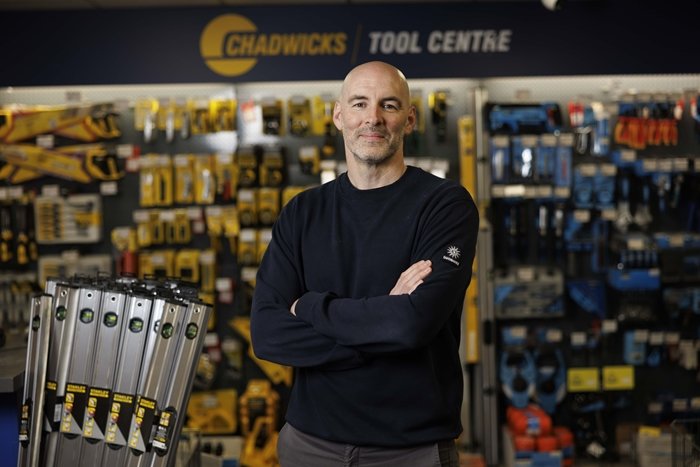
New research of 100 tradespeople into their attitudes towards their mental health was carried out to launch the second year of ‘How’s the Head?’, a Chadwicks campaign aimed to equip tradespeople with the tools to improve their mental health.
Key findings
- 44% of tradespeople believe their mental health could be improved
- Over 1 in 4 (29%) prioritise their physical fitness over their mental fitness
- Of those who struggle with their mental health, 32% say they don’t talk to anyone about it
- Low mood (70%) and anxiety or stress (64%) are the most common symptoms
- More than half (58%) have lost sleep over work in the last year
- Over 2 in 5 (44%) tradespeople say their mental health could be improved and 29% admit to prioritising their physical fitness over their mental health.
As part of the campaign and for the second year running, over the next four weeks, Chadwicks will donate €1 from every sale of PPE (personal protective equipment), which includes high vis jackets, hard hats and safety boots in all branches nationwide, to Irish mental health charity, Aware. Aware provides essential support to individuals affected by mental health conditions throughout Ireland.
Mental health management
According to the Chadwicks survey, of those that struggle with their mental health, 32% say they don’t talk to anyone about it while 36% say they confide in their partner. Low moods (70%) and feeling stressed or anxious (64%) are the main symptoms experienced but despite this, only 2% of those who struggle with their mental health say they would speak to a professional.
Recognising the need to do more for their mental wellbeing, over a third (36%) say they are actively trying to take steps to improve their mental fitness with spending more time with loved ones (55%) and getting a good night’s sleep (31%) some of the key steps they are taking.
At work
Chadwicks explored tradespeople’s work habits as part of the study, and the research revealed the following:
- Not taking regular breaks (37%) and working too many hours (31%) are some of the habits they have developed that can have a negative impact on their mental health.
- Over half (58%) admit to losing sleep over work in the past year
Recognising the importance of mental health to colleague’s well-being, Chadwicks, in conjunction with Vhi, runs an ongoing mental health awareness programme, designed to help colleagues manage their mental health better. At least one colleague at every Chadwicks location will complete the programme as part of the company’s on-going commitment to colleague wellbeing, and new hires to Chadwicks also go through well-being awareness training as part of their induction process.
Commenting on the research findings, Patrick Atkinson, CEO of Chadwicks said: ‘’It’s encouraging to see tradespeople becoming more aware of their mental health and taking steps to stay mentally fit, but the research makes it clear—this conversation needs to stay front and centre.
At Chadwicks, we recognise the unique pressures tradespeople can face and know it’s our responsibility to use our platform to bring more attention to this, driving meaningful change. Through ‘How’s the Head’, we are committed to shining a spotlight on how mental health impacts tradespeople, breaking down stigma, and encouraging more people in the trades to open up. Equally, we understand that supporting mental health starts from within and that’s why, in conjunction with Vhi, we run an ongoing mental health awareness programme for our colleagues, reinforcing our commitment to fostering a culture where mental health and colleague wellbeing are a top priority.’’
Dr Susan Brannick, Clinical Director at Aware, concluded: "We are very grateful to be the charity partner for Chadwicks’ ‘How’s the Head’ campaign again this year. Initiatives like this are so important, not only to spark conversations and break down stigma but to ensure that those in the trades have access to the support they need. While self-awareness and reaching out for help are vital steps, it’s equally crucial that well-funded, accessible services are in place for those who do."

